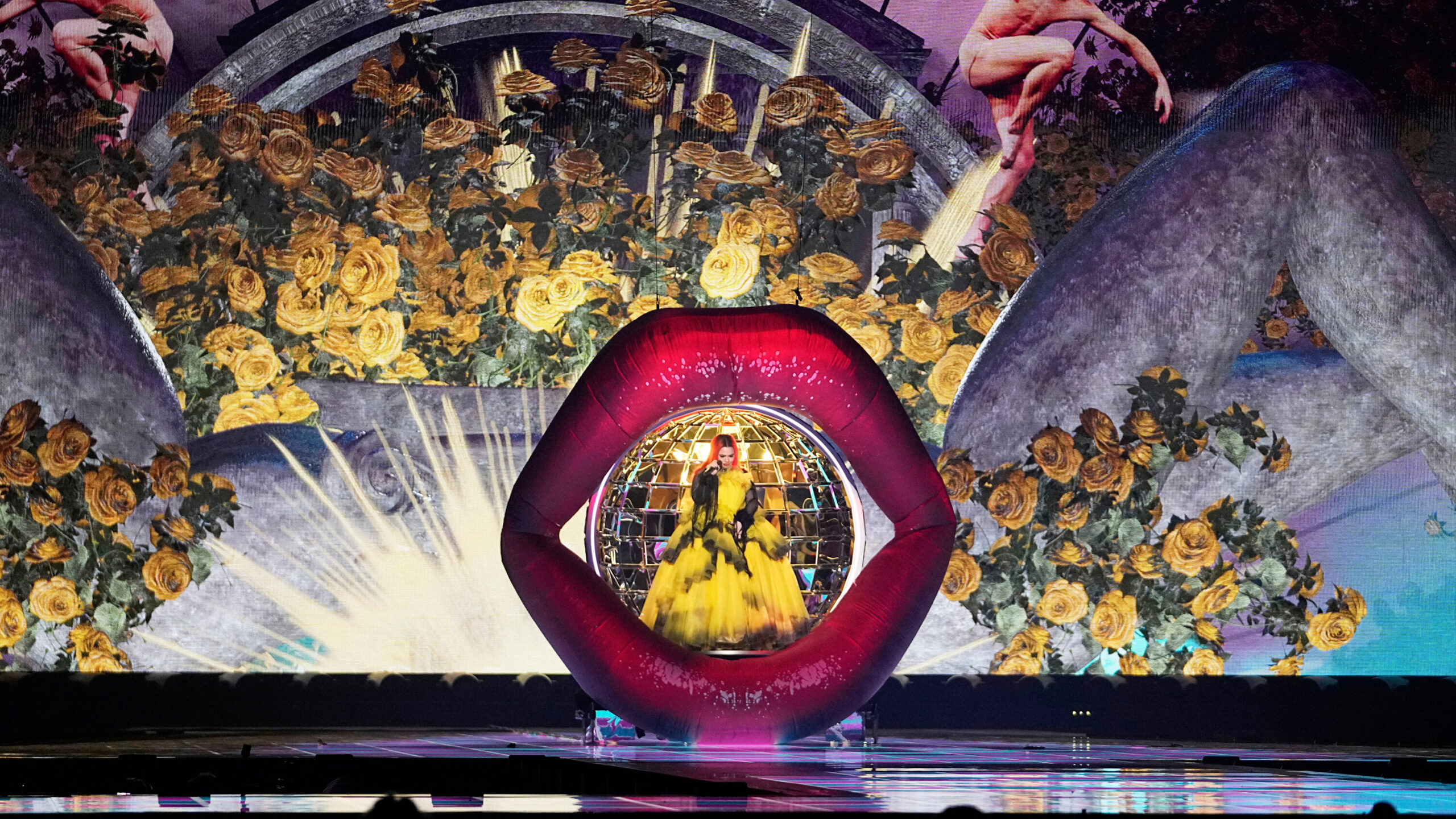You never knew when Friday’s world-premiere crowd of Eddington was going to laugh. This was surely expected on the part of writer-director Ari Aster, who unflinchingly and often comically dives into the extremities of the immediate post-COVID moment in the U.S. His portrait of that unsettling period ranges from broadly silly to agonizingly specific, and while not every audience member was bound to recognize every reference in every given scene—the debates over masks, racial injustice, and police corruption are very specific to its milieu—the movie’s generally discomfiting nature informed much of the reaction too. “I don’t know what to say—I don’t know what you think,” Aster said with a smirk after the film ended to a respectful standing ovation. “I don’t know, sorry?”
On Saturday, Aster was joined at a press conference by his cast: Joaquin Phoenix, who plays an anti-mask town sheriff in May 2020; Pedro Pascal, the mayor and his primary adversary; and Emma Stone, Phoenix’s character’s alarmist wife, and more. “I wanted to show what it feels like to live in a world where nobody can agree on what is real anymore,” Aster said beside his colleagues. “I wanted to make a film about what America felt like at that time—and it felt bad. I am very worried. We need to re-engage with each other. That’s the only hope.”
It’s inevitably ironic, then, that Eddington has already sparked spirited debates among crowds on the Croisette, in busy waiting areas around the Palais, and at cocktail parties. It’s a movie people can’t stop talking about even if they don’t always seem to enjoy talking about it with others all that much. (I’ve heard a few instances of raised voices.) As of this writing, Eddington sits at a mediocre 60% on Rotten Tomatoes and is the worst-scoring movie on Screen Daily’s critical aggregate of movies in the Cannes Competition so far. The widely spread Letterboxd star-score curve indicates audience reception will be similarly polarized.
Eddington will be released in theaters on July 18, giving studio A24 a few more months to build momentum. It’s another big, tonally ambitious swing for Aster, following his surrealist epic Beau Is Afraid, which bombed at the box office on a $35 million budget and similarly struggled to win over critics en masse. Like Eddington, that movie was designed to be divisive—but Aster ultimately came away frustrated with how it landed with audiences.
“I fantasize about there having been a time during which a film like this might’ve come out and divided audiences, and it would’ve made people excited to go to the theater in order to determine how they felt themselves, as opposed to just people hearing, ‘Oh, the response is all over the board, so I’m not going to bother,’” Aster told me of Beau in 2023. “I was hoping that the draw of a debate would be greater.”
Eddington offers that draw again, certainly. But in speaking so directly to the state of the U.S. right now, it’s reasonable to hope for that to create more curiosity among potential viewers. Aster may have moved away from the strict horror genre since his career launched with Hereditary and Midsommar, but Eddington’s got a haunting quality of its own. “It felt like the first time that we had a mole, a whistleblower almost—someone from the inside being like, ‘This is what’s happening,’” Pascal said at the press conference of what he felt Aster accomplished. “That was really powerful to me. I don’t think I understood that until I saw it.”
This story is part of Awards Insider’s in-depth 2025 Cannes Film Festival coverage, including first looks and exclusive interviews with some of the event’s biggest names. Stay tuned for more Cannes stories as well as a special full week of Little Gold Men podcast episodes, recorded live from the festival and publishing every day.
Listen to Vanity Fair’s Little Gold Men podcast now.







